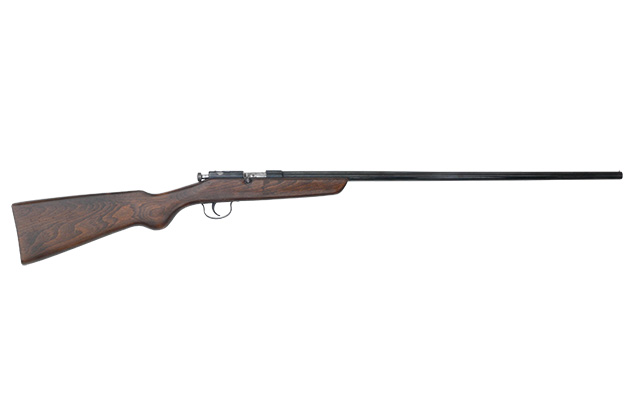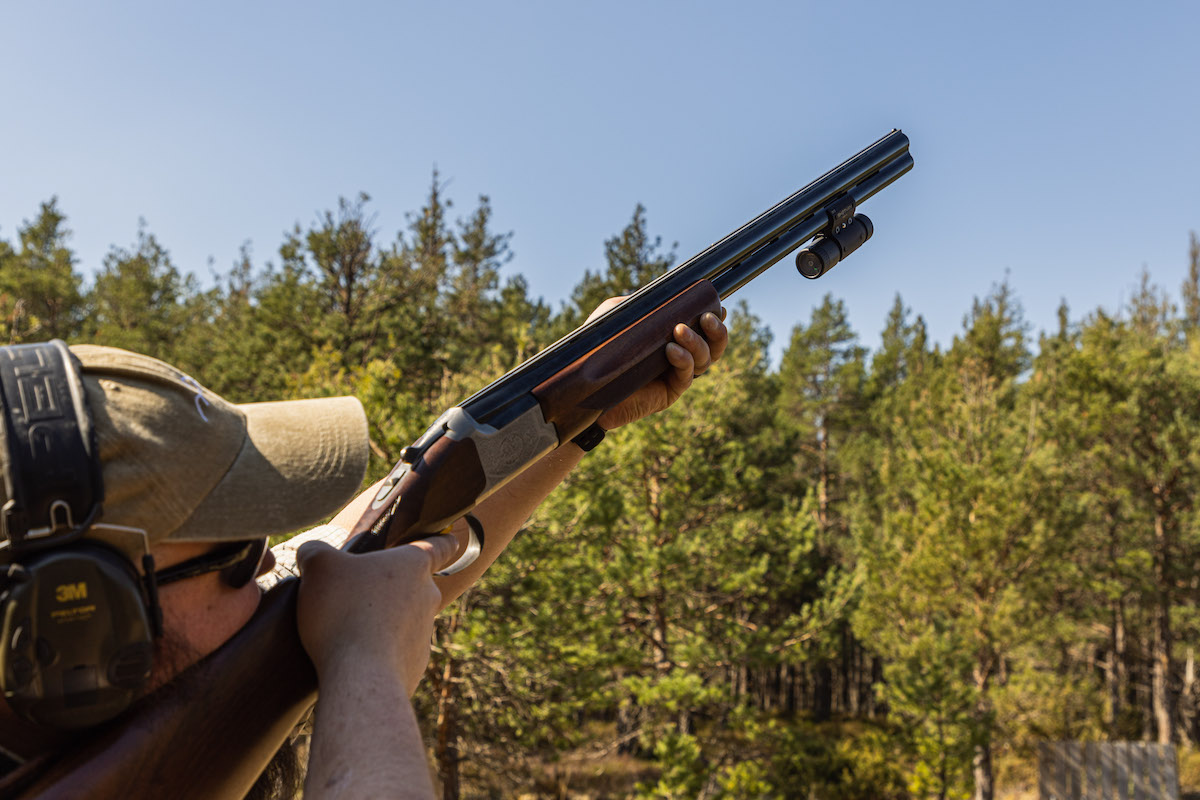Webley & Scott .410 and 9mm Bolt-Action Shotguns
For vermin control, these little guns are hard to beat in terms of simplicity, says Lewis Potter

Webley & Scott .410 and 9mm Bolt-Action Shotguns
Manufacturer: Webley & Scott
Price as reviewed: £50
The turn-bolt would not seem to be the obvious sort of action on which to build a shotgun. It rings to mind something clumsy and awkward such as the Belgian conversions of old military rifles. It was, however, a choice of action sometimes favoured for budget shotguns built around the smaller vermin control cartridges. The most popular, and in production for many years, was the Webley & Scott, chambered for the .410 and 9mm No.3 cartridges.
The .410 and 9mm
The .410 is the better known and more common of the two, and proved to be a popular “knockabout” gun. Its main competitor was the Belgian folding .410, which would fold down to the length of the barrel — usually around 26in — while the Webley & Scott measures a leggy 43½in.
The 9mm version is slightly smaller, but not by much. While at first glance it appears identical to the .410, the receiver is 1in shorter and of slightly smaller diameter with a scaled-down bolt. On the examples that have passed through my hands the 9mm barrel is usually half an inch less, which still gives an overall length of 42in. Both guns are lightweight; the 9mm weighs about 4lb and the .410 weighs 5¼lb.
Other detail differences include twin locking lugs on the .410 compared with the single lug on the 9mm, which is the one formed at the base of the bolt handle. The .410 also has the sophistication of sprung cartridge guides at the front of the receiver, a pegged extractor arm that prevents accidental loss and a slightly bigger stock.
In use
The action of the turn-bolt is of the type known as “cock on closing”. This means the cocking piece at the rear of the bolt engages with and is held back by the trigger-sear as the bolt is pushed forward to close. The safety is a little slow to operate, but it must be one of the most foolproof ever devised.
The knurled knob at the rear of the cocking piece is pulled back slightly and turned a few degrees to the right. A lug on the body of the cocking piece slots into a mating cut-out in the receiver wall and acts as a natural stop. On releasing the knurled knob, a protruding pin locks into a small slot and the word “safe” is then visible on the bolt.
As for extraction, this is another lesson in simplicity. It is of the half-moon type with a long arm sliding in a slot cut through the bottom of the receiver. When the bolt is unlocked and moved rearwards, it catches on a raised lug at the end of the extractor arm, which then withdraws the extractor and cartridge or fired case. Trigger-pulls are usually acceptable for a shotgun of this type.
Well constructed and reliable
Webley & Scott bolt actions were noted for simple construction and reliability. They also shot good patterns, but then again the maker knew a thing or two about shotgun barrels, at one time being the biggest supplier to the UK trade of barrel tubes.
The .410 version was always the more popular gun and, chambered for the 2½in cartridge, was a bit more flexible for vermin shooting. There is more choice and better availability of .410 cartridges than the 9mm No. 3, though the latter is a most useful “ratting” gun in the vicinity of buildings and, in spite of its garden gun description, is certainly no toy.
To modern eyes a bolt-action shotgun may appear to be something of an anachronism, but these Webley & Scotts served well for years. Many, in fact, continue to do so.
Buying a secondhand Webley & Scott .410 and 9mm bolt-action
Barrel: barrels are strong and usually more pit-free than cheaper alternatives from the same period
Action: almost without fault, though the front action screw fi xing, a threaded sleeve, has been known to fail
Weight: 9mm is 4lb; .410 is 5¼lb
Value: prices vary from around £50 for a scruffy example to more than £100 for a really good one









